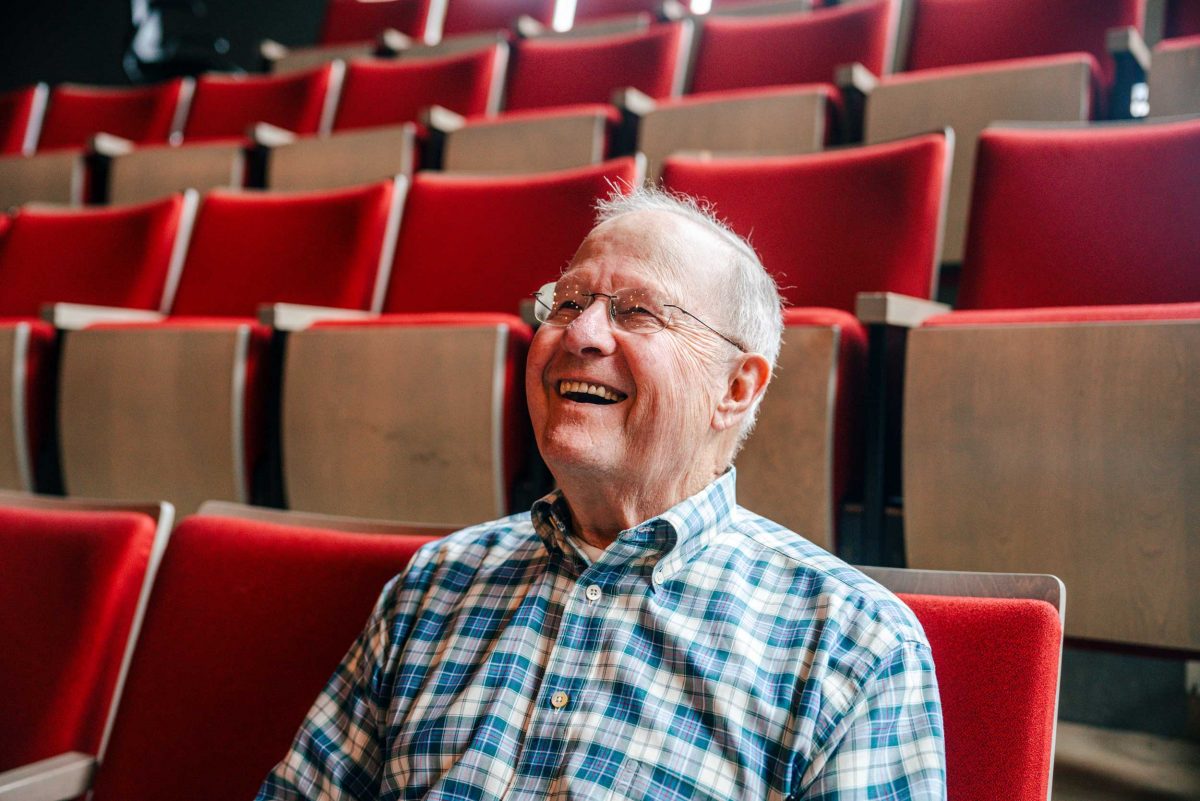Conceived and directed by longtime artistic director Robert Chapel, The Virginia Theatre Festival presents 50 Years and Counting: A Musical Revue, running Thursday, June 27, to Sunday, June 30. Celebrating the golden anniversary of professional theater in Charlottesville, this program highlights some of the most well-known and loved songs from the company’s first half-century, including hits from Annie Get Your Gun, Guys and Dolls, My Fair Lady, West Side Story, and many more. Performed by audience-favorite actors and vocalists—including some Broadway veterans—this is certainly an event worth popping some champagne for. In advance of this raucus revue, C-VILLE Weekly spoke with Chapel to gain some insight into the man behind the production.
Name: Bob Chapel
Age: 79
Pronouns: He/him/his
Hometown: Detroit, Michigan
Job(s): Professor of Theatre (now Emeritus); Theatre Director
What’s something about your job that people would be surprised to learn: Talent really doesn’t grow on trees.
Best part of living here: Everything that a university town offers and my very good friends.
Worst part of living here: Extreme heat and humidity in the summer months.
Favorite Charlottesville restaurant: The Villa and/or Tip Top.
Bodo’s order: Lox, cream cheese, tomato, and onion on an “Everything” bagel.
What’s your comfort food/meal? Ribeye steak, green beans, mushrooms, baked potato.
How do you take your coffee? With 2% milk and Sweet and Low.
Who is your hero? Joseph Papp, former Artistic Director of NYC’s Public Theatre.
Best advice you ever got: Do the thing one loves and let the experts worry about the investments.
Proudest accomplishment: Chairing the UVA Department of Drama and producing the Heritage Theatre Festival at UVA.
Describe a perfect day: Eight hours of very good rehearsal, then a lovely dinner and evening with my wife and dog.
If you could be reincarnated as a person or thing, what would you be? A person who could hit a golf ball 300 yards.
If you had three wishes, what would you wish for? Extended good health for my wife, Maria, my dog, and me. Wars around the world to end. Whatever current show I might be directing at the time to be a success (in this case: 50 Years and Counting).
Most embarrassing moment: Many moments—not being able
to remember people’s names
when I should.
Do you have any pets? A 4-year-old, 12-pound Havanese dog named Mayzie.
Favorite movie and/or show? Show: “Sunday in the Park With George.” Film: Mr. Holland’s Opus.
Favorite book: Act One by Moss Hart.
What are you listening to right now? “Morning Joe.”
Go-to karaoke song: “Somebody Loves Me” by Gershwin (I’m old).
Best Halloween costume you’ve worn: I never liked Halloween so I can’t remember.
Who’d play you in a movie? Richard Dreyfuss.
Celebrity crush: Meg Ryan (many years ago).
Most used app on your phone: Maps.
Last text you sent: To an actor in 50 Years and Counting.
Most used emoji: I don’t use them.
Subject that causes you to rant: Donald Trump.
Best journey you ever went on: State Department Performance Tour all over Russia in 2006 (when Russia was a nice place to visit).
Next journey: Possibly to Greece in the fall.
Favorite curse word? Or favorite word: (I’m) Sorry.
What have you forgotten today? Nothing, it’s early in the morning, but I’m sure will be many things as the day progresses.

